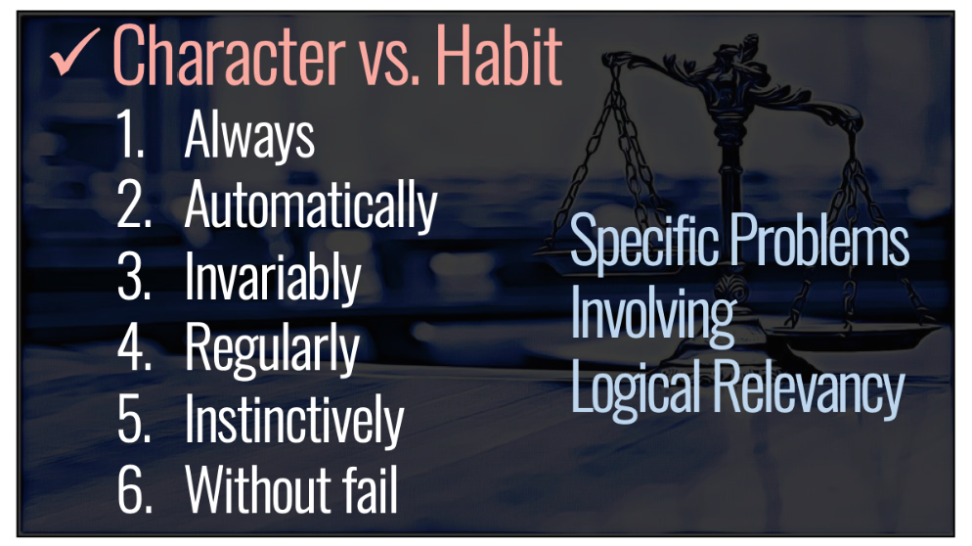Judges apply the rules of evidence to determine whether to admit or exclude physical evidence, oral testimony & exhibits, and if admitted the jury decides how much weight to afford the evidence. As a starting point, the rules of evidence permit only relevant and trustworthy evidence to be make it in front of the jury. This CLE will focus on specific problems involving logical relevance, character evidence in civil cases and character evidence in criminal cases.


